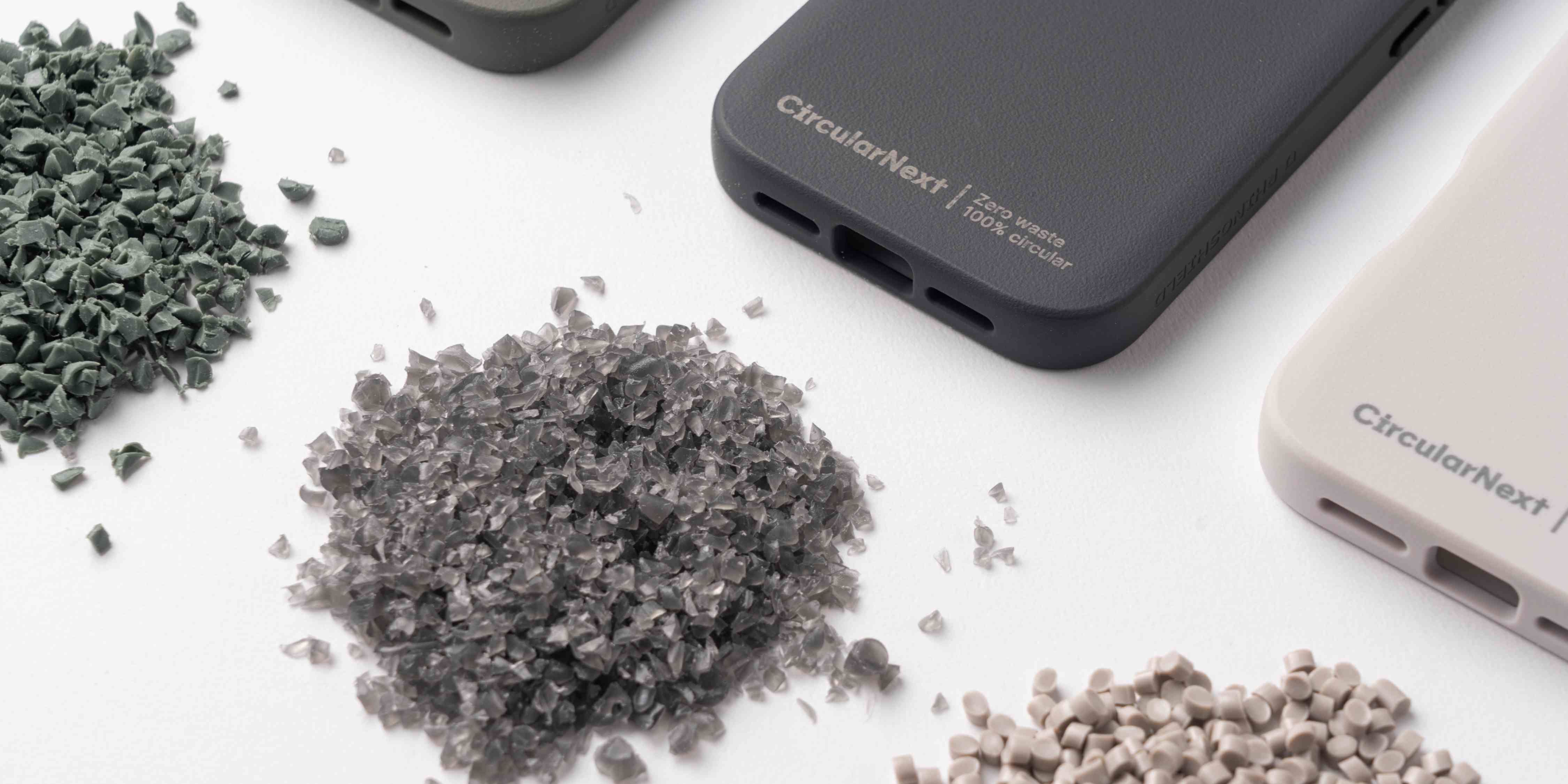11-04-2025
Reading time: 8 min
When aiming for a toxin-free lifestyle, most people immediately think of daily necessities like food containers, cleaning supplies, or cosmetics— but your phone case deserves the same attention. Everyday chemicals like BPA (Bisphenol A) and PFAS (Per- and polyfluoroalkyl substances) can linger in plastics, making them durable but potentially harmful to health and the environment. These compounds are commonly used in plastics to enhance durability, stain resistance, and water repellency— but they carry potential long-term risks for both human health and the environment. As an early pioneer in non-toxic phone accessories, RHINOSHIELD believes your phone case should serve not only as device protection but also as a safeguard for your well-being. Through proprietary material innovations and rigorous production controls, all RHINOSHIELD phone cases meet strict safety standards: BPA-free, BPF-free, BPS-free, and PFAS-free— ensuring every touch is thoughtfully designed to be safe, sustainable, and worry-free.
11-04-2025
Reading time: 8 min

BPA is a widely used plastic additive that enhances hardness and durability, while PFAS are prized for their water- and oil-repellent properties. However, PFAS are highly persistent, resisting natural degradation and accumulating over time in both the human body and the environment. Both BPA and PFAS have been recognized by numerous international authorities as potentially toxic and are classified as Endocrine Disrupting Chemicals (EDCs).
The World Health Organization (WHO) highlights the potential health risks of BPA, particularly regarding reproductive, developmental, and metabolic functions, with heightened concern for children and pregnant women. WHO has also issued drinking water guidelines for PFAS, noting that their long-term presence in the body may contribute to immune suppression, cancer, and developmental challenges.
Though invisible, these substances are widespread—in food packaging, cosmetics, and everyday household products—and can continuously release trace toxins. Their persistence poses chronic threats not only to human health but also to the environmental ecosystems, highlighting the importance of conscious, non-toxic material choices in our daily lives.
In January 2024, the International Pollutants Elimination Network (IPEN) released a report analyzing 119 packaging and paper tableware samples from 17 countries. Alarmingly, 64 samples—over half—contained PFAS, highlighting widespread non-compliance with safety standards.
In response, regions including the European Union, California, and Canada have enacted PFAS bans, and more brands are adopting BPA-Free and PFAS-Free standards. These measures reflect a growing recognition that manufacturers are responsible for their products’ full life cycle.
The European Food Safety Authority (EFSA) also lowered BPA’s tolerable daily intake in 2023, warning of potential immune system harm and calling for strict limits in everyday items. These developments highlight a clear global consensus: reducing BPA and PFAS is essential for protecting both human health and the environment.
In the phone case industry, BPA and PFAS are commonly used to enhance plastic stability, improve stain resistance, and create a premium surface touch. Eliminating these chemicals requires more than material substitution—it demands a complete redesign of products, formulations, and manufacturing processes with a life-cycle approach.
With global smartphone users spending an average of 4 hours and 37 minutes per day on their devices (Time Spent Using Smartphones, 2025), prolonged exposure to these chemicals could transfer toxins through the skin, posing potential health risks. Prioritizing non-toxic materials ensures the phone case protects both the device and well-being.
RHINOSHIELD’s entire phone case lineup is proudly BPA-Free and PFAS-Free.
To achieve this, we developed a proprietary mono-material TPE formulation, eliminating BPA, PFAS, and other toxic substances at the source—while maintaining high-impact protection and optimal user experience. Strict manufacturing controls further prevent any potential contamination.
This is not a one-off innovation but a systematic safeguard: every batch is tested and certified by SGS, with PFAS, BPA, BPS, and BPF all Not Detected —without compromising impact protection. At RHINOSHIELD, drop protection is just the start— holistic protection means leveraging material science to safeguard your device, your health, and the planet.
References & Sources
1.World Health Organization. (2011). Toxicological and health aspects of bisphenol A: Report of Joint FAO/WHO Expert Meeting, Ottawa, Canada, 2–5 November 2010. WHO Press.
2.World Health Organization. (2022). Per- and polyfluoroalkyl substances (PFAS). WHO: Chemical Hazards in Drinking-water.
3.International Pollutants Elimination Network. (2024). Forever Chemicals in Single-Use Food Packaging and Tableware: PFAS in 17 Countries. IPEN.
4.Exploding Topics. (2025). Time Spent Using Smartphones (2025 Statistics). https://explodingtopics.com/blog/smartphone-usage-stats